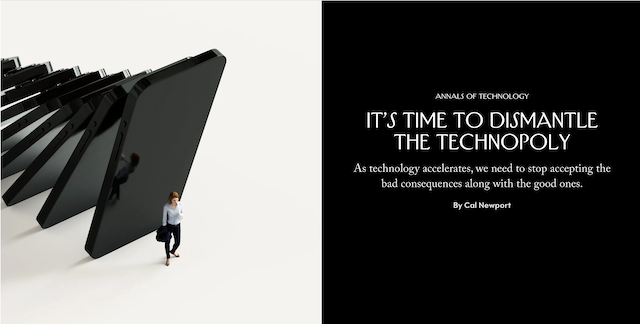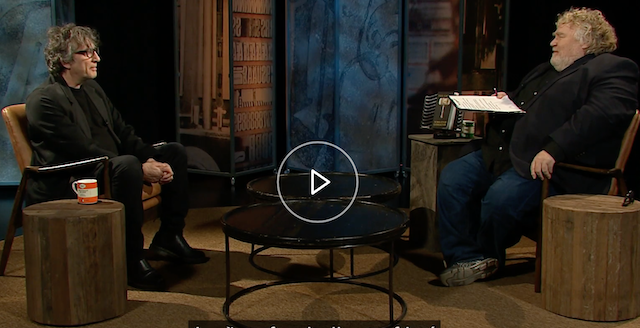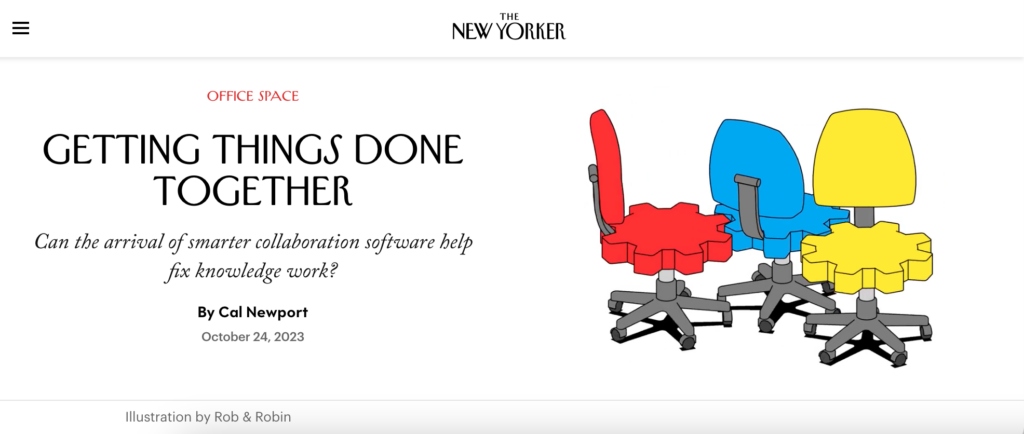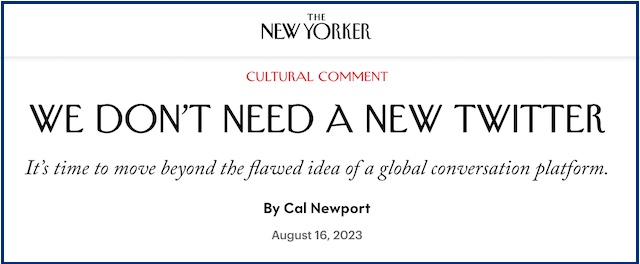
In the fall of 2016, I wrote an op-ed for the New York Times that pushed back against the conventional wisdom that social media was important for your career. “In a capitalist economy, the market rewards things that are rare and valuable,” I wrote. “Social media use is decidedly not rare or valuable.” Aided in large part by an attention-catching headline — “Quit Social Media. Your Career May Depend on It” — my piece touched a nerve, soon hitting the top of the paper’s Most Emailed chart.
This sudden prominence generated a fierce backlash. I was invited on a radio program only to be ambushed by two surprise guests invited to refute my ideas. A well-known communication professor began emailing me invitations to debate. One online publication described my call to use less social media as a call to disenfranchise marginalized peoples. (I’m still trying to figure that one out.) Perhaps most notably, two weeks later, the Times took the unusual step of publishing a response op-ed — “Don’t Quit Social Media. Put it to Work for Your Career Instead” — that went through the main points of my piece one by one, explain why each was wrong.
In my most recent essay for The New Yorker, published earlier today, I revisit this incident from seven years ago. As I write, my distinct impression of this period was that of being targeted by a cultural immune reaction: “The idea of stepping away altogether from powerful new tools like social media just wasn’t acceptable; readers needed to be assured that such advice could be safely ignored.”







